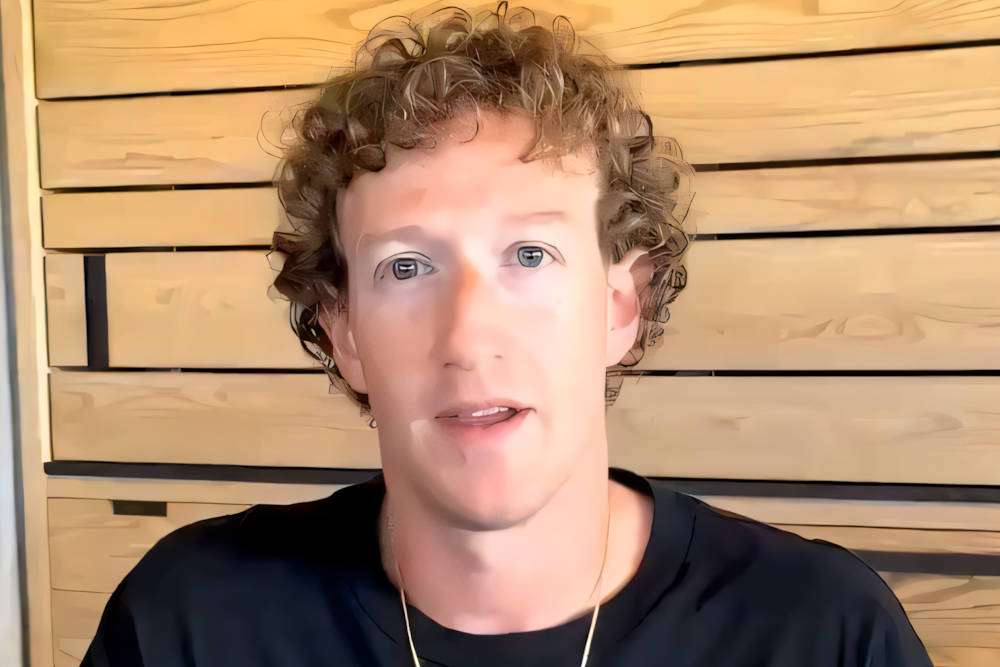
In a significant policy shift announced on January 7, 2025, Meta CEO Mark Zuckerberg declared that the company will terminate its third-party fact-checking program across its platforms, including Facebook and Instagram. This initiative will be replaced by a community-driven system akin to the "Community Notes" feature employed by Elon Musk's X (formerly Twitter). Zuckerberg cited concerns over political bias and the suppression of free expression as primary motivations for this change.
Panaprium is independent and reader supported. If you buy something through our link, we may earn a commission. If you can, please support us on a monthly basis. It takes less than a minute to set up, and you will be making a big impact every single month. Thank you!
Concerns Over Political Bias and Censorship
Zuckerberg acknowledged that the existing fact-checking framework had inadvertently become a tool for censorship, with inherent biases influencing content moderation decisions. He stated, "Experts, like everyone else, have their own biases and perspectives... A program intended to inform too often became a tool to censor."
This admission reflects longstanding criticisms that Meta's content moderation disproportionately targeted conservative viewpoints, leading to allegations of systemic bias within the company's operations. The decision to dismantle the fact-checking program appears to be an effort to address these concerns and restore balance to the platform's content oversight.
Implementation of Community Notes
The new "Community Notes" system will empower users to collaboratively assess and provide context to potentially misleading content. This model relies on diverse user contributions to flag and annotate posts, aiming to democratize content moderation and reduce institutional bias. Zuckerberg emphasized that Meta will not directly influence the creation or selection of these notes, stating, "Once the program is up and running, Meta won’t write Community Notes or decide which ones show up. They are written and rated by contributing users."
This approach mirrors the system implemented by Elon Musk on X, which has been lauded for promoting free speech and reducing centralized control over content moderation. Musk's endorsement of Meta's decision underscores the growing trend among tech giants to adopt more decentralized moderation strategies.
Relocation to Address Cultural Bias
In addition to overhauling content moderation policies, Meta plans to relocate its U.S. content moderation teams from California to Texas. This move is intended to mitigate cultural and political biases associated with Silicon Valley and foster a more diverse operational environment. Zuckerberg noted that this relocation aims to "reduce the kind of mistakes that account for the vast majority of the censorship on our platforms."
The strategic shift to Texas, a state with a distinct political landscape, reflects Meta's commitment to diversifying its operational footprint and addressing criticisms of ideological homogeneity within its workforce.
Reintroduction of Political Content
As part of this policy transformation, Meta will lift previous restrictions on certain topics, including immigration and gender identity, that are central to political discourse. The company intends to allow more speech by focusing enforcement on illegal and high-severity violations, thereby reducing over-enforcement that has led to the suppression of legitimate political debate.
This change signifies a reversal of earlier policies that limited the dissemination of political content, which had been criticized for stifling free expression and contributing to an echo chamber effect.
Implications for Global Content Moderation
Zuckerberg expressed concerns that previous censorship practices had inadvertently encouraged other countries to implement similar measures, thereby restricting global free expression. He emphasized the need to collaborate with international leaders to combat censorship, stating, "We will work with President-elect Donald Trump to oppose global censorship efforts."
This international dimension highlights the broader implications of Meta's policy changes, as the company seeks to influence global standards for content moderation and free speech.
Skepticism and Criticism
Despite these announced changes, skepticism persists regarding Meta's motivations. Critics argue that the timing of the policy shift, coinciding with the election of President-elect Donald Trump, suggests a strategic alignment with the incoming administration. Concerns have been raised that this move may be an attempt to curry favor with conservative policymakers or to position Meta advantageously in potential negotiations, such as the acquisition of platforms like TikTok.
Safety advocates and fact-checking organizations have also expressed apprehension that the elimination of professional fact-checkers could lead to an increase in misinformation and harmful content on Meta's platforms. They warn that relying solely on community-driven moderation may be insufficient to effectively manage the spread of false information.
Conclusion
Meta's decision to terminate its third-party fact-checking program and implement a community-driven moderation system represents a significant shift in the company's approach to content oversight. By addressing concerns of political bias and censorship, and by relocating key operations to Texas, Meta aims to foster a more balanced and open platform for discourse.
However, the success of these initiatives will depend on their implementation and the company's ability to navigate the complex landscape of free expression, misinformation, and global content moderation. As these changes unfold, stakeholders will closely monitor their impact on the digital information ecosystem and the broader societal implications of Meta's renewed commitment to free speech.
Sources
Was this article helpful to you? Please tell us what you liked or didn't like in the comments below.
About the Author: Alex Assoune
What We're Up Against
Multinational corporations overproducing cheap products in the poorest countries.
Huge factories with sweatshop-like conditions underpaying workers.
Media conglomerates promoting unethical, unsustainable products.
Bad actors encouraging overconsumption through oblivious behavior.
- - - -
Thankfully, we've got our supporters, including you.
Panaprium is funded by readers like you who want to join us in our mission to make the world entirely sustainable.
If you can, please support us on a monthly basis. It takes less than a minute to set up, and you will be making a big impact every single month. Thank you.































0 comments